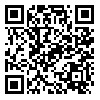Volume 10, Issue 3 (12-2018)
2018, 10(3): 1-6 |
Back to browse issues page
Download citation:
BibTeX | RIS | EndNote | Medlars | ProCite | Reference Manager | RefWorks
Send citation to:



BibTeX | RIS | EndNote | Medlars | ProCite | Reference Manager | RefWorks
Send citation to:
Ahanchian H, Norouzians S, Azizzadeh M, Khakshour A, Khodashenas E. The Effect of Immunotherapy on the Clinical Signs of Patients with Asthma and Allergic Rhinitis Referred to the Allergy Clinic of Sheikh Hospital in Mashhad during 2013-2016. North Khorasan University of Medical Sciences 2018; 10 (3) :1-6
URL: http://journal.nkums.ac.ir/article-1-1580-en.html
URL: http://journal.nkums.ac.ir/article-1-1580-en.html
Hamid Ahanchian1 

 , Sedigheh Norouzians2
, Sedigheh Norouzians2 
 , Mohammad Azizzadeh3
, Mohammad Azizzadeh3 
 , Ali Khakshour4
, Ali Khakshour4 
 , Ezzat Khodashenas *
, Ezzat Khodashenas * 

 5
5


 , Sedigheh Norouzians2
, Sedigheh Norouzians2 
 , Mohammad Azizzadeh3
, Mohammad Azizzadeh3 
 , Ali Khakshour4
, Ali Khakshour4 
 , Ezzat Khodashenas *
, Ezzat Khodashenas * 

 5
5
1- Associate Professor of Allergy Pediatrics, Faculty of Medicine, Mashhad University of Medical Sciences, Mashhad, Iran
2- Medical Student, Faculty of Medicine, Mashhad University of Medical Sciences, Mashhad, Iran
3- Associate Professor, Department of Clinical Sciences, School of Veterinary Medicine, Ferdowsi University of Mashhad, Mashhad, Iran
4- Assistant Professor of Pediatrics, Faculty of Medicine, Mashhad University of Medical Sciences, Mashhad, Iran
5- Assistant Professor of Pediatrics, Faculty of Medicine, Mashhad University of Medical Sciences, Mashhad, Iran , khodashenase@mums.ac.ir
2- Medical Student, Faculty of Medicine, Mashhad University of Medical Sciences, Mashhad, Iran
3- Associate Professor, Department of Clinical Sciences, School of Veterinary Medicine, Ferdowsi University of Mashhad, Mashhad, Iran
4- Assistant Professor of Pediatrics, Faculty of Medicine, Mashhad University of Medical Sciences, Mashhad, Iran
5- Assistant Professor of Pediatrics, Faculty of Medicine, Mashhad University of Medical Sciences, Mashhad, Iran , khodashenase@mums.ac.ir
Abstract: (3901 Views)
Introduction: Immunotherapy involves the gradual administration of increasing allergens to patients, aimed at reducing or eliminating the adverse clinical response of the patient to subsequent contact with these allergens. The aim of this study was to evaluate the effect of immunotherapy on the clinical symptoms of asthmatic patients and allergic rhinitis referred to the Allergy Clinic of Sheikh Hospital in Mashhad during 2013 to 2016.
Methods: This before/after clinical trial was performed on 40 patients aged 7-50 years with mild to moderate asthma and moderate to severe allergic rhinitis. All patients had immunotherapy with allergens of pollen, weeds, and grass, based on the response of skin prick test. The effect of immunotherapy after a minimum of six months of therapy was studied.
Results: Among 40 patients with a mean age of 16.8 years, 48.1% were female and 51.9% were male. Sixty percent of patients had allergic rhinitis and 40% were asthmatics. Immunotherapy in 52.38% of patients improved daily performance and resolved sleep problems in 61.9%. Sixty-two percent of patients noted that after immunotherapy their disease was controlled easily with the drug, which was statistically significant.
Conclusions: According to the results of this study, standard immunotherapy with inhalational allergens could be effective in reducing the clinical symptoms of patients with moderate to severe allergic rhinitis and mild to moderate persistent allergic asthma.
Methods: This before/after clinical trial was performed on 40 patients aged 7-50 years with mild to moderate asthma and moderate to severe allergic rhinitis. All patients had immunotherapy with allergens of pollen, weeds, and grass, based on the response of skin prick test. The effect of immunotherapy after a minimum of six months of therapy was studied.
Results: Among 40 patients with a mean age of 16.8 years, 48.1% were female and 51.9% were male. Sixty percent of patients had allergic rhinitis and 40% were asthmatics. Immunotherapy in 52.38% of patients improved daily performance and resolved sleep problems in 61.9%. Sixty-two percent of patients noted that after immunotherapy their disease was controlled easily with the drug, which was statistically significant.
Conclusions: According to the results of this study, standard immunotherapy with inhalational allergens could be effective in reducing the clinical symptoms of patients with moderate to severe allergic rhinitis and mild to moderate persistent allergic asthma.
Type of Study: Orginal Research |
Subject:
Basic Sciences
Received: 2017/09/23 | Accepted: 2018/05/8 | Published: 2018/12/17
Received: 2017/09/23 | Accepted: 2018/05/8 | Published: 2018/12/17
Send email to the article author
| Rights and permissions | |
 |
This work is licensed under a Creative Commons Attribution-NonCommercial 4.0 International License. |



